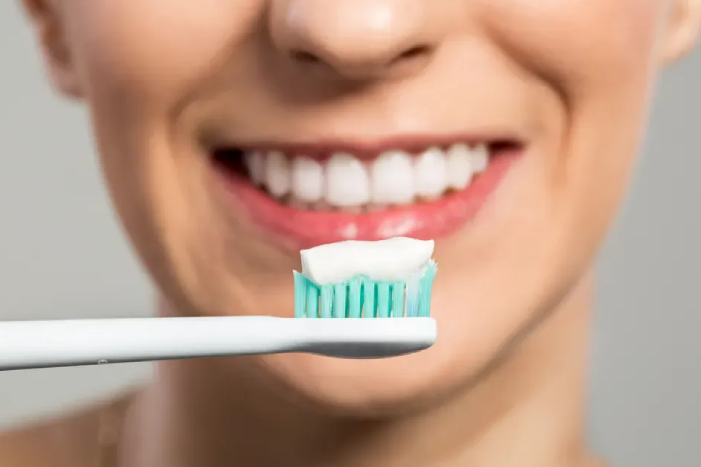
We all want a bright, radiant smile. In the quest for whiter teeth, many people turn to whitening toothpaste as part of their daily oral hygiene routine. But the question arises: Is it safe to use whitening toothpaste every day? Can using it too often damage your teeth?
In this blog, we will explore the pros and cons of using whitening toothpaste daily, dive into how it works, and address common concerns such as “Is it bad to swallow toothpaste?” and the role of charcoal toothpaste in whitening.
How Does Whitening Toothpaste Work?
Before we discuss whether it’s safe to use whitening toothpaste daily, it’s essential to understand how it works. Unlike in-office treatments that use powerful bleaching agents, whitening toothpaste relies on abrasives and mild chemicals to remove surface stains from your teeth.
These surface stains typically come from everyday activities like drinking coffee, tea, red wine, or smoking.
Key Ingredients in Whitening Toothpaste:
- Mild Abrasives: These are small particles that physically scrub stains off the surface of the teeth. While effective, overuse may cause enamel wear.
- Hydrogen Peroxide or Carbamide Peroxide: Some whitening toothpastes contain small amounts of peroxide, a bleaching agent, to help break down stains.
- Enzymes or Chemicals: These help break down stains on the teeth without affecting the enamel.
- Activated Charcoal: Charcoal toothpaste has become a trendy option, claiming to absorb stains and toxins from the teeth. More on this later.
Is It Safe to Use Whitening Toothpaste Every Day?
The short answer is: It depends on the type of toothpaste you’re using and how sensitive your teeth are. For the most part, whitening toothpaste is safe for daily use if it has been approved by reputable dental organizations.
However, frequent use of whitening toothpaste can pose some risks:
1. Tooth Sensitivity
Many whitening toothpastes contain abrasive ingredients designed to remove surface stains. While they are effective in doing this, overuse may wear down your enamel over time, leading to increased tooth sensitivity. Once the enamel is worn away, it doesn’t grow back, which means your teeth could become permanently more sensitive to hot and cold temperatures.
2. Gum Irritation
Some people may experience irritation in their gums when using whitening toothpaste daily, especially if the toothpaste contains strong bleaching agents like hydrogen peroxide. If you notice your gums are red, sore, or receding, it may be a sign that the toothpaste is too harsh for your oral tissue.
3. Over-Abrasion
Because whitening toothpastes rely on abrasive ingredients, there is a risk of over-abrasion. This means that the constant scrubbing of your teeth can erode enamel and lead to more serious dental issues such as cavities or discoloration of the inner layers of your teeth (dentin).
So, is it safe to use whitening toothpaste every day? If you have healthy teeth and gums and use Because whitening toothpaste relies on abrasive ingredients to scrub away surface stains, there is a risk of over-abrasion when used too frequently. This can lead to the erosion of enamel, which is the protective outer layer of your teeth.
When enamel wears away, it cannot regenerate, exposing the underlying dentin. This not only makes your teeth more vulnerable to decay but also causes them to appear more yellow due to the natural color of the dentin beneath the enamel.
For those with healthy teeth and gums, using whitening toothpaste every day may not lead to immediate problems, but it is essential to monitor for any signs of sensitivity or wear and to consult your dentist if you experience discomfort.
4. Effectiveness on Deep Stains
It’s important to note that whitening toothpaste is only effective on surface stains. It does not change the natural color of your teeth or remove deeper stains. If your teeth are yellowed or discolored due to intrinsic factors (like aging or medication), whitening toothpaste won’t offer much help. In such cases, professional treatments, like in-office whitening or take-home kits with stronger bleaching agents, may be a better option.

How Often Should You Use Whitening Toothpaste?
So, how often do you need dental X-rays when considering oral health? Similarly, how often should you use whitening toothpaste? The frequency depends on your individual dental health and goals. Many dental professionals recommend alternating between whitening toothpaste and regular fluoride toothpaste to ensure you’re protecting your enamel while also addressing stains.
A good rule of thumb is to use whitening toothpaste a few times a week rather than every day, especially if you notice any signs of sensitivity or irritation.
Pairing your whitening toothpaste with other whitening methods like avoiding foods that stain (coffee, wine, etc.) and using whitening strips occasionally can also help maintain a brighter smile without relying too heavily on abrasive toothpaste.
Is It Bad to Swallow Toothpaste?
Another concern that some people have is: Is it bad to swallow toothpaste? While accidentally swallowing a small amount of toothpaste during brushing is unlikely to cause harm, it’s important to avoid swallowing large amounts, especially with whitening toothpaste.
Toothpaste contains fluoride, which helps protect teeth from cavities, but swallowing too much fluoride over time can lead to a condition called fluorosis. Fluorosis results in white spots on the teeth and, in severe cases, can lead to pitting or discoloration.
This is particularly a concern for children, which is why they are often advised to use a smaller amount of toothpaste and to spit it out thoroughly after brushing.
If you accidentally swallow toothpaste, there’s no need to panic. But consistently ingesting it over time can be harmful, so it’s best to avoid the habit altogether.

What About Charcoal Toothpaste?
In recent years, charcoal toothpaste has gained popularity as a natural alternative for whitening teeth. Activated charcoal is thought to absorb toxins and stains from the surface of the teeth. However, much like other abrasive toothpaste options, charcoal toothpaste can pose risks if used excessively.
Charcoal toothpaste is often more abrasive than regular toothpaste, which means it can wear down enamel quickly if used frequently. The long-term safety and effectiveness of charcoal toothpaste are still being studied, and many dentists caution against its regular use. The American Dental Association has yet to endorse charcoal toothpaste due to concerns about its potential to harm the enamel.
While charcoal toothpaste may help with minor surface stains, its abrasive nature makes it unsuitable for daily use, especially if you already use other whitening products. If you’re interested in trying charcoal toothpaste, it’s best to limit its use to once or twice a week and consult your dentist for recommendations.
Alternatives to Daily Whitening Toothpaste Use
If you’re concerned about using whitening toothpaste every day but still want to maintain a bright smile, there are several alternatives you can consider:
- Professional Whitening Treatments: In-office whitening treatments offer more dramatic results than toothpaste and are often safer because they’re supervised by a dentist. These treatments use stronger bleaching agents that penetrate deeper into the enamel without the risk of over-abrasion.
- Whitening Strips: Over-the-counter whitening strips can be a more gentle and effective option than daily whitening toothpaste. They are applied directly to the teeth and left on for a specific time to gradually whiten your smile.
- Regular Fluoride Toothpaste: You can alternate between whitening toothpaste and a regular fluoride toothpaste to maintain good oral health without over-scrubbing your enamel.
- Whitening Mouthwash: Whitening mouthwashes can help maintain a bright smile by reducing surface stains and keeping your mouth fresh without the abrasiveness of toothpaste.
- Avoid Staining Foods: Reducing your intake of foods and beverages that stain teeth, like coffee, tea, red wine, and soda, can help keep your teeth whiter naturally.
Conclusion
To wrap it up, is it safe to use whitening toothpaste every day? The answer is generally yes for short-term use, especially if your toothpaste has been approved by a dental association and doesn’t cause any immediate sensitivity. However, for long-term use, it’s better to be cautious.
Overuse of whitening toothpaste can lead to enamel erosion, sensitivity, and gum irritation.
For most people, it’s best to use whitening toothpaste a few times a week and switch back to regular fluoride toothpaste for daily use. If you’re unsure about the safety of your whitening products, consult your dentist, who can guide you on the best way to keep your smile bright and healthy.
Toothpaste is an essential part of oral hygiene, and making the right choice will ensure both beauty and health for your teeth.
By maintaining a balanced approach, you can enjoy the benefits of whitening toothpaste without risking long-term damage to your teeth. Always remember, your dental health should come first so choose wisely and brush safely!


